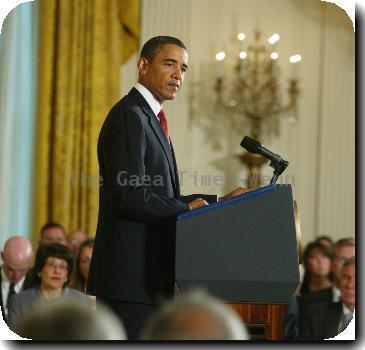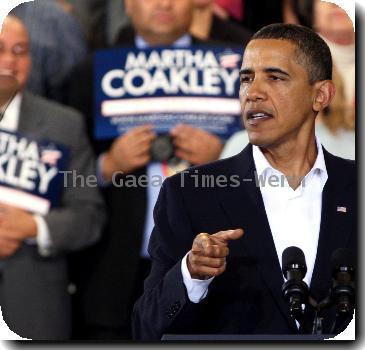Indiana Democrats face tough task finding Senate candidate to replace Bayh on November ballot
By Rick Callahan, APWednesday, February 17, 2010
Ind. Dems face tough task replacing Bayh on ballot
INDIANAPOLIS — Indiana Democrats stunned by Sen. Evan Bayh’s decision not to seek a third term face the daunting task of finding a candidate for the November ballot to fill the shoes of the man who’s long been the Republican-leaning state’s most popular Democrat.
“There’s no obvious replacement for him. Nobody immediately comes to mind because he’s been such a towering presence,” said Robert Dion, a professor of American politics at the University of Evansville.
Indiana’s Republican leanings have long made the state tough ground for Democrats. Hoosiers had gone 44 years without choosing a Democrat for president before Barack Obama narrowly won the state in 2008.
And until Bayh entered politics in the 1980s, Republicans had long ruled the Statehouse.
Indiana remains a “very small-town rural kind of state” whose residents don’t like new government programs, spending and taxes, said William Kubik, a professor of political science at Hanover College.
That climate poses a challenge to Democrats running for statewide office — with many having a conservative streak.
“The Democrats who win the governor’s office often look very different from national Democrats. That’s where Evan Bayh sort of made his reputation, being a moderate kind of Democrat,” Kubik said.
From the beginning of his political career, Bayh was the party’s shining star.
A centrist whose father, former Sen. Birch Bayh, lost to Dan Quayle in 1980, the younger Bayh first took office in 1987 as secretary of state. That led to a successful 1988 bid for governor that ended 20 years of Republican control of the Indiana’s top office.
Bayh left the governor’s office with a reputation for fiscal responsibility and an approval rating of nearly 80 percent that crossed party lines. He has been a party stalwart and was a top fundraiser whose campaign war chest, which now stands at about $13 million. He even made it to Obama’s short list for vice president.
Kubik said Democrats will face a “tremendously hard” task finding the right candidate for run in Bayh’s place, especially this year.
Voter anger toward Congress and the Obama administration is rising. A Pew Research Center poll of registered voters released Friday showed that voters nationwide are seething with anti-incumbent feelings that match the high levels of 2006 and 1994 — both years when control of Congress changed hands.
Bayh said Monday he was retiring from the Senate in part because he had grown weary of partisan sniping in Congress. But Kubik believes Bayh decided to “strategically retire” because he feared losing in the current political environment.
Bayh’s opponent in November could have been former Sen. Dan Coats or former Rep. John Hostettler. State Sen. Marlin Stutzman and at least two other Republicans also have filed for the May primary.
Now, Democrats aren’t sure who they’ll field. Bayh’s announcement came one day before the deadline to submit the required 4,500 signatures to be on the ballot. No one met that deadline.
As a result, the state Democratic central committee will choose a candidate for the November ballot, allowing Democrats to avoid a primary fight while Republicans face what could be a bruising primary.
Indiana Democratic Party Chairman Dan Parker said the committee, which has until June 30 to field a candidate, won’t meet until there’s “consensus and support built for whoever the nominee is.”
There’s no clear frontrunner or any big names. Those being discussed include Indiana congressmen Baron Hill and Brad Ellsworth and Hammond Mayor Thomas McDermott Jr.
“This is topsy-turvy right now but we still have a good shot at still winning the Senate, depending on who our candidate is,” said Terry White, the Democratic Party chairman in Indiana’s Warrick County. “We were more of a lock cinch with Sen. Bayh, of course.”
Tags: Barack Obama, Evan bayh, Executive Branch, Geography, Indiana, Indianapolis, North America, Political Fundraising, Political Organizations, Political Parties, United States




